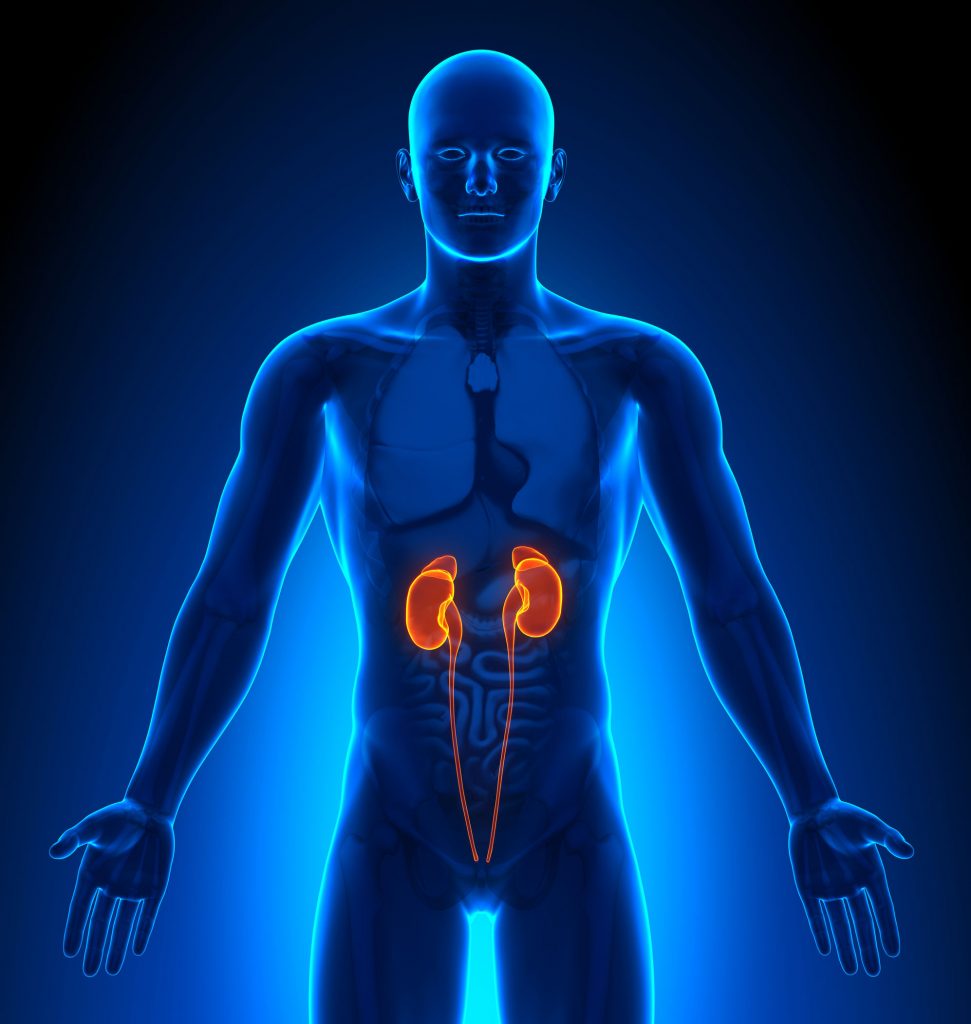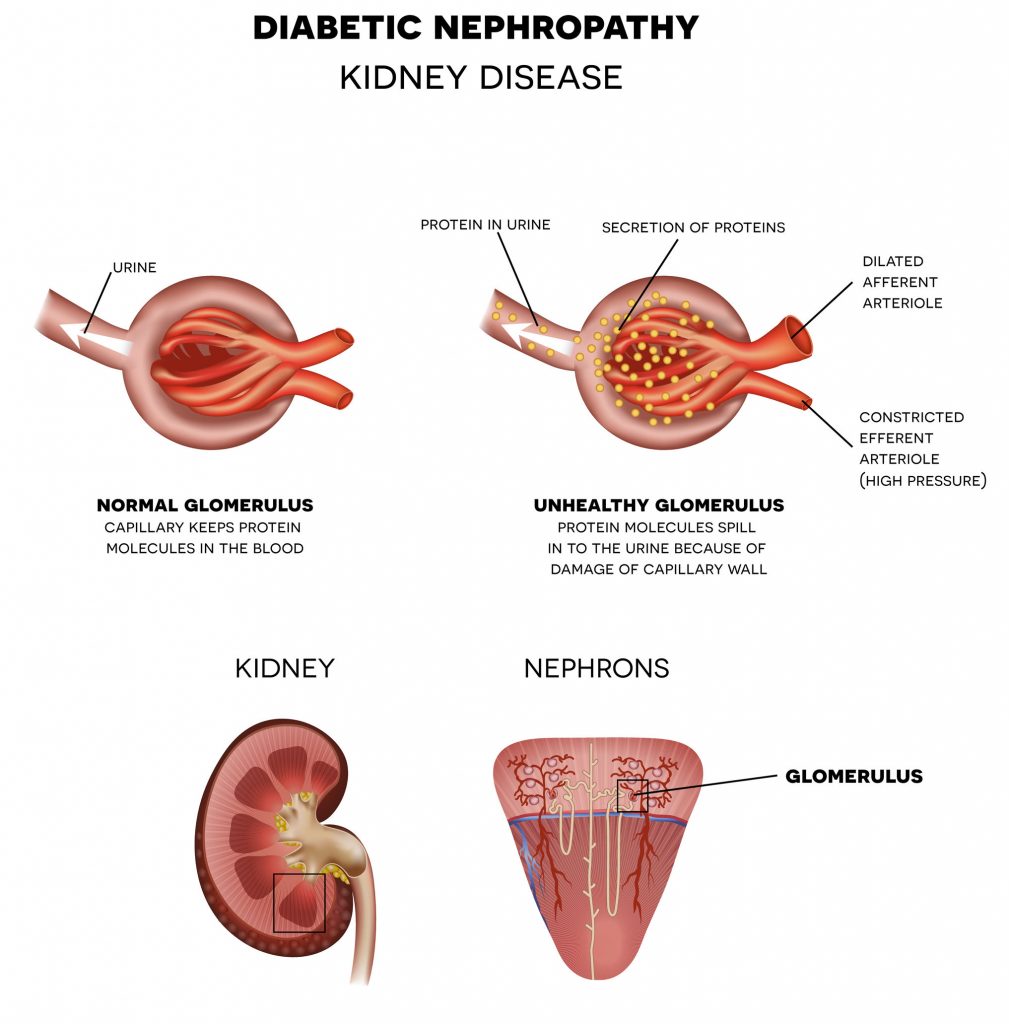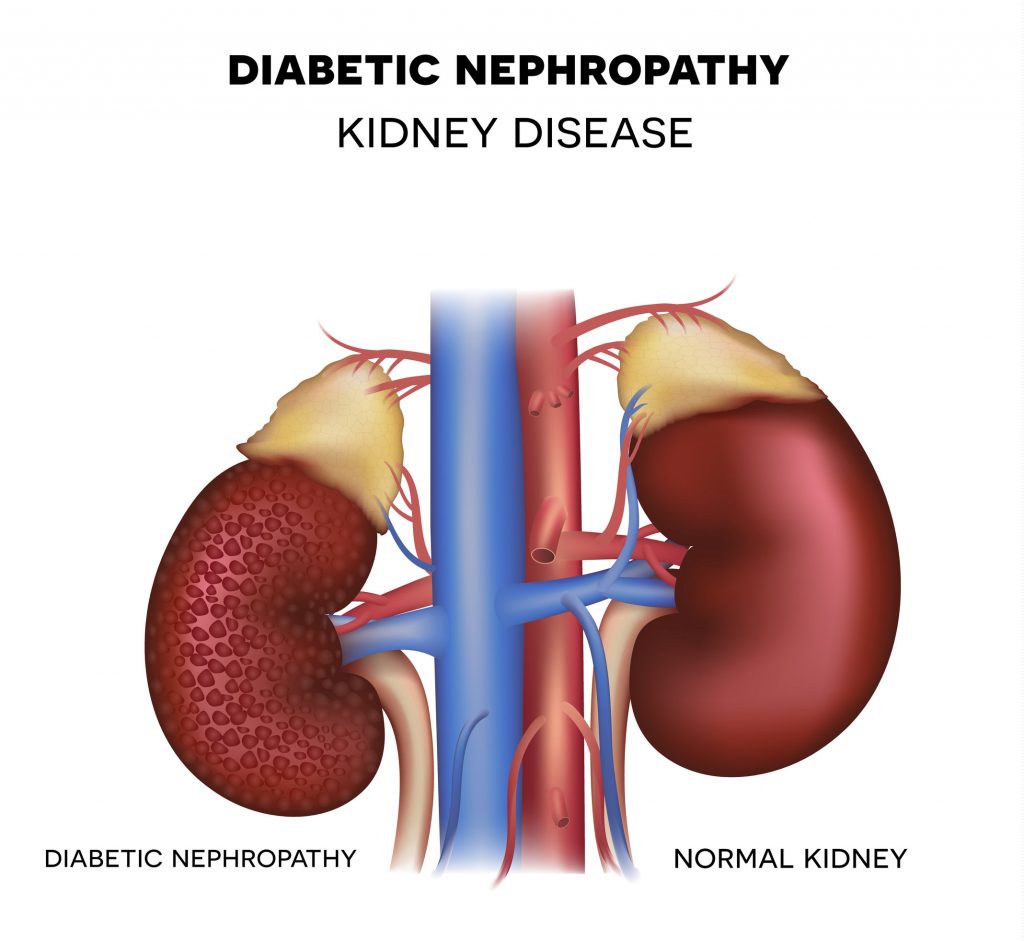How Diabetes Affects Your Kidneys – Causes, Symptoms, Treatment
Posted by Prescription Hope - See Editorial Guidelines (Last Updated On: Fri Apr 21 2023)
The kidneys play a vital role in removing waste from the blood to keep the body healthy. However, problems can occur with the kidneys, leading to a lack of ability to remove waste from the blood. Problems with the kidneys often arise due to diabetes.
It is estimated that nearly 20-30 percent of people with diabetes will develop kidney disease. So, in this article, we will discuss how diabetes affects your kidneys. But first, here’s is a quick summary to give you a basic understanding.
How Diabetes Affects Your Kidneys? High blood sugar due to diabetes can lead to nephropathy. Nephropathy is the damage to the small blood vessels in the kidneys, which help clean the blood. The longer one has diabetes, the more likely one will suffer from kidney problems.
Before getting into the specifics about how diabetes affects the kidneys, let’s gain a better understanding of the function of the kidneys and why they are so crucial.
The function of the Kidneys

The kidneys consist of two bean-shaped organs about four to five inches long. They are on either side of the spine below the ribcage.
The primary function of the kidneys is to filter the blood and remove waste and excess fluid from the body. Examples of waste removed by the kidneys include urea, potassium, sodium, creatinine, and chloride. The kidneys dispose of the waste through urine. The way this process works starts with the food you eat.
After your body has broken down food and received the nutrients it needs, it sends the remaining waste to the blood. The blood then circulates to the kidneys, where nephrons in the kidneys filter the blood. Each kidney contains about a million nephrons. Each nephron has a tiny blood vessel (glomerulus) that aids in the complex, waste collecting process.
If the kidneys do not filter out waste properly, then the waste can buildup in your blood, leading to complications.
The kidneys have other functions as well, including secreting certain hormones. One hormone is erythropoietin, which is what stimulates the bone marrow to produce red blood cells. Renin is another hormone that helps regulate blood pressure. The last hormone secreted by the kidneys is calcitriol, which is a form of vitamin D that helps with bone health.
As you can see, the kidneys play a major role in keeping the body healthy and maintaining an overall fluid balance throughout one’s body.
How Diabetes Affects Your Kidneys
With diabetes being the leading cause of kidney disease, one may ask, how does diabetes affect your kidneys?

It is estimated that about a quarter of the people that have diabetes experience kidney disease. High blood sugar (hyperglycemia) caused by diabetes can damage the blood vessels in the kidneys. The damage done to the blood vessels can lead to diabetic kidney disease. Over time, high blood sugar can cause the blood vessels to become narrowed and potentially blocked. Therefore, there is a lack of blood flow to the kidneys, leading to damage.
Another way diabetes affects your kidneys is through nerve damage. Nerves are essential for transmitting messages between the brain to other parts of the body, including the bladder. Your bladder will signal to the brain when the bladder is full. However, if nerves are damaged, then the signal will not reach your brain, and you may not feel that your bladder is full. When your bladder is continuously full, it can place pressure on your kidneys. The pressure placed on the kidneys can cause damage to them.
In addition to the pressure on the kidneys, a urinary tract infection (UTI) is more likely to occur if one’s bladder is full for too long. Bacteria will grow quickly in urine, especially if the urine has a high sugar level. The bacteria has the potential to affect the kidneys if it spreads.
Signs of Kidney Damage in Patients with Diabetes
Now that you understand how diabetes affects your kidneys let’s gain an understanding of the signs and symptoms of kidney damage in diabetes patients.
Early stages of kidney disease do not typically present signs or symptoms. If you have diabetes, then you may want to have a kidney function test done once a year. This is the best way to diagnose early kidney damage, and thus, help prevent kidney damage from becoming worse.
If kidney damage becomes worse, then it can lead to kidney disease or kidney failure. Signs and symptoms of kidney failure include:
- Decreased urination
- Fluid retention
- Shortness of breath
- Fatigue
- Confusion
- Nausea
- Weakness
- Irregular heartbeat
- Chest pain
- Seizures
Diagnosing Kidney Damage
As mentioned above, a urine test is a way kidney damage can be diagnosed. This includes the analysis of a urine sample. If one’s urine is abnormal, then this could be a sign of kidney disease.
A blood test can also be done to help diagnose kidney disease. A blood sample is drawn, which will be analyzed for waste products, such as creatinine and urea.
Some cases may require image testing to determine the state of one’s kidneys. An ultrasound is used in this case to determine the structure and size of one’s kidneys.
The last way kidney disease can be diagnosed is through the testing of a kidney tissue sample. The biopsy of kidney tissue can be done using a local anesthetic and a long thin needle. The sample of kidney tissue is then sent off for testing.
Can You Reverse Kidney Damage From Diabetes?

Diabetic kidney disease may be reversible if it is diagnosed in the early stages. In the early stages, you have the chance to make some changes that can prevent kidney damage from progressing and possibly reverse any damage that has been done.
If kidney damage from diabetes is farther along and nothing has been done to treat the condition, then it is not reversible. However, making changes as soon as you discover kidney disease may prevent you from having kidney failure.
Managing Diabetes and Kidney Damage
The most impactful step one can take when it comes to managing diabetes and kidney damage is to control blood sugar levels. By preventing your blood sugar levels from going high for long durations, you are preventing farther kidney damage from occurring.
Management of your blood pressure is also crucial when it comes to diabetic kidney disease. In addition to this, you should talk to your doctor about taking medications that lower cholesterol levels, improve bone health, and reduce the level of protein in your urine.
It is important to have regular tests done to check on the function of your kidneys and to determine the levels of protein in your urine, as well as your cholesterol. Keeping these levels in the normal range will help prevent more kidney damage caused by diabetes.
If you have advanced diabetic kidney disease, then your options may be limited. One option is kidney dialysis. Dialysis is a treatment that uses a machine to serve the purpose of your kidneys and remove waste from your blood. Kidney dialysis needs to be done about three days a week.
If you are eligible to have a transplant surgery, then a kidney transplant might be your best option. Choosing to do neither dialysis nor surgery will shorten your life expectancy.
It is important to note that controlling blood sugar levels is still essential during dialysis treatment or transplantation. One may have trouble keeping their glucose levels in check during advanced diabetic kidney disease, so you should consult your doctor.
Conclusion
We hope this has given you greater insight into how diabetes affects your kidneys and what you can do about it. If you have questions regarding your specific medical condition, then consult your doctor.
If you are struggling to afford the medication you need, then contact Prescription Hope. Prescription Hope works directly with pharmaceutical companies to provide you with the medication you need at a set, affordable cost. Enroll with us and start paying $60.00 a month through Prescription Hope’s medication access service for each drug.

